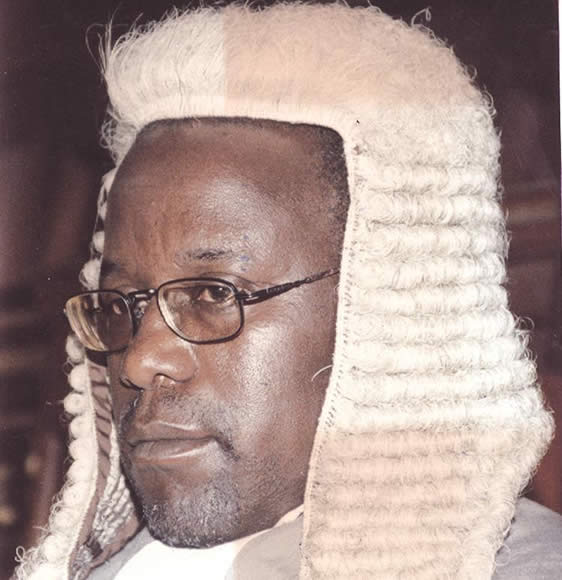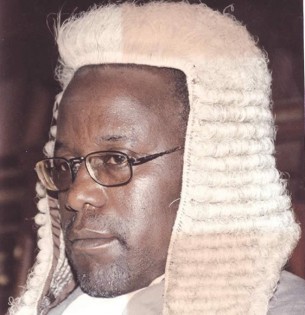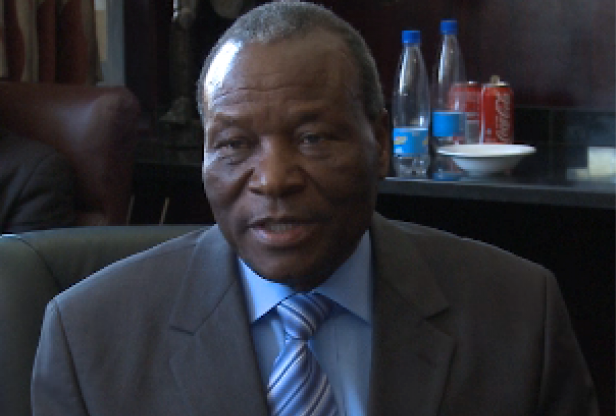Code of conduct for Executive proposed

Zvamaida Murwira Senior Reporter—
Former High Court judge Justice Moses Chinhengo says Parliament should enact a binding code of conduct and ethics for Vice Presidents, ministers, their deputies and permanent secretaries to ensure accountability, transparency and integrity. He described as “shocking” a report in yesterday’s edition of The Herald that an officer running the national tertiary examinations database had no qualifications for the job and that some members of the Hexco board had no idea of their responsibilities.
The retired judge — who worked in Zimbabwe and Botswana — was delivering a paper before a joint Parliamentary Portfolio Committee on Justice, Human Rights and Local Government.
The joint sitting was organised by the Zimbabwe Lawyers for Human Rights and was on “Accountability and transparency in Government institutions and public bodies in the new Constitution: The oversight role of Parliament”.
Justice Chinhengo, who helped draft the new Constitution, referred to the new Constitution, saying: “Section 106 (3) requires Parliament to provide a law that prescribes a code of conduct for Vice Presidents, Ministers, Deputy Ministers and permanent secretaries.
“Recent reports of widespread scandals in the parastatals where chief executive officers awarded themselves high and unsustainable salaries right in front of ministers and possibly with their complicity indicate the need to enact a code of conduct for these people.”
Section 106 (3) says: “An Act of Parliament must prescribe a code of conduct for Vice Presidents, Ministers and Deputy Ministers.”
Justice Chinhengo emphasised the need to appoint people on merit, citing the example of the Hexco officer who is an automotive precision machinist and not an IT expert but was running the national exams database.
“If that is true, it’s shocking, isn’t it? Equally ominous is the news that some board members of Hexco do not know their responsibilities. Now can we run a nation that way?” he queried.
“Even when you go to look for a n’anga, you sniff around if this n’anga is good enough. That is merit. I think this nation, until we recognise merit and appoint public officers on the basis of merit, there would be little headway.”
University of Zimbabwe law lecturer Professor Lovemore Madhuku said in his view, the ruling by National Assembly speaker Cde Jacob Mudenda that legislators in plenary should only raise allegations backed by evidence violated the Constitution.
He urged MPs to defy the ruling saying they would win the case at the Constitutional Court.
“Freedom of expression is free. It does not require evidence. Evidence makes it expensive and it ceases to be free. All I need is to have the energy to say it. If I have enough strength to say a thing then I am exercising freedom of speech,” Prof Madhuku said.
Prof Madhuku urged MPs to debate in terms of their conscience rather than along party lines. He said if their parties expelled them en masse this would prompt a public outcry and force a change in the law allowing parties to eject legislators.
Clerk of Parliament Mr Austin Zvoma bemoaned underfunding of Parliament.
“Regrettably what is happening is that Parliament is being treated like a poorer cousin of the executive. Parliament is being given a pittance to exercise very important constitutional duties,” he said.
Auditor-General Ms Mildred Chiri and Zimbabwe Human Rights commissioners also attended the workshop.










Comments